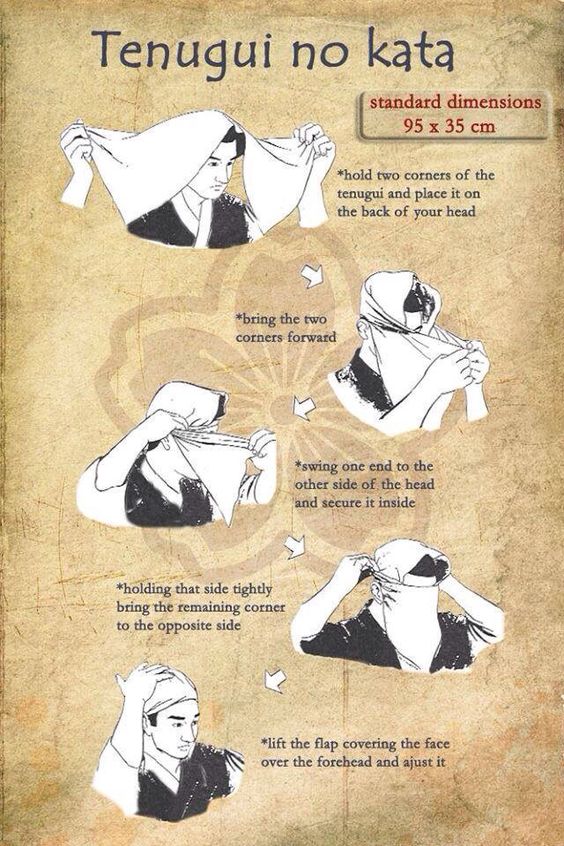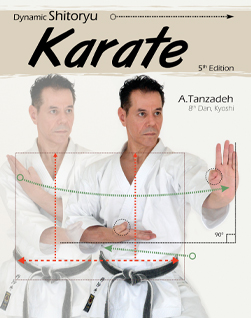A Tenugui (手拭い) is a thin Japanese hand towel made of cotton. It’s usually around 3 feet (90 cm), plain-woven and is sometimes dyed with some pattern. It can be used for virtually anything, as a washcloth, dishcloth, but often as a headband, souvenir, decoration, or for wrapping items such as bottles.
Tenugui, literally “hand wipe”, were first produced during the Edo Era (1603-1868) and was soon regarded as one of the seven essential items for travelers. As a towel it was light and easy to carry, soft on the skin, and being woven without seams, dried easily in the humid Japanese climate. It could also be used to bind wounds, repair the straw sandals commonly worn at that time, and for a dozen other purposes that made it indispensable.
In martial arts dojos it was worn around the forehead to prevent sweat running into the eyes, under the fencing mask for comfort and additional protection, and through the sash at the waist as an ever present aid to keeping the hands dry in order to secure a firm grip on a weapon. A well worn and much washed tenugui was the mark of a serious student who had trained hard, and was therefore highly valued.





